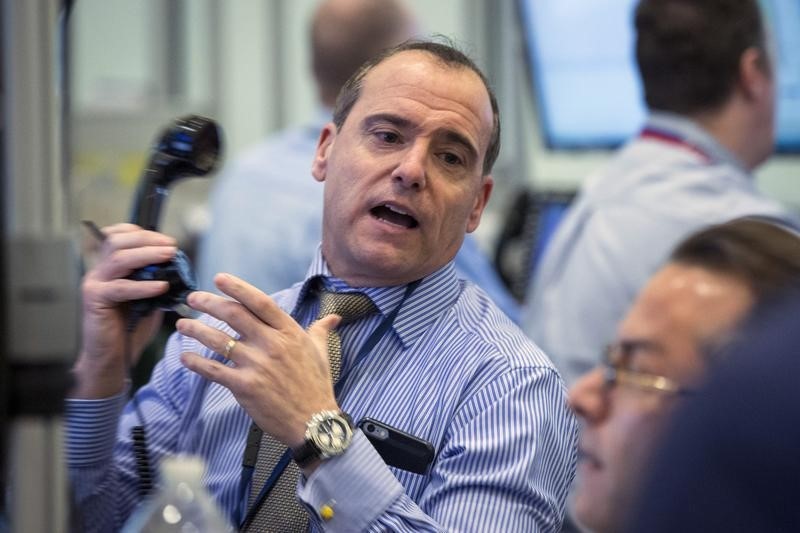By David Gaffen
NEW YORK (Reuters) - U.S. Treasuries prices rallied, the U.S. dollar fell and stock index futures fell on Friday after weaker-than-expected March U.S. jobs data.
U.S. Labor Department data showed employers added just 126,000 jobs in March, the smallest monthly increase in more than a year. The figure was well below forecasts for a gain of 245,000, according to a Reuters poll of economists.
Bond prices rose sharply, pushing the benchmark 10-year Treasury note yield to its lowest level in about two months, as the expectation for a Federal Reserve interest-rate rise by September diminished.
U.S. equity index futures fell nearly 1.0 percent, with S&P 500 E-mini futures dropping 19.75 points to 2039.75 in thin volume in a 45-minute abbreviated session, indicating a weak open for stocks on Monday.
"The sharply lower-than-consensus job creation for March is a reminder that the U.S. economic recovery is yet to reach escape velocity," said Mohamed El-Erian, chief economic advisor at Allianz (XETRA:ALVG) Se in Newport Beach, Calif.
Trading was thin on Friday due to the Good Friday holiday, as major U.S. stock exchanges were closed, and the reaction in both U.S. Treasuries and in U.S. equity futures was affected by the light volume.
The benchmark 10-year Treasury rose 20/32 in price to yield 1.845 percent, near a two-month low. The U.S. bond market closed at 1200 ET (1600 GMT).
Major European markets are closed from Friday to Monday for the Easter holiday, reopening on Tuesday. Asian equity markets rallied in thin trading ahead of the Easter holiday and the U.S. jobs figures.
The report weakened the U.S. dollar, continuing a recent downturn in the greenback that followed a more than 20 percent rally in the currency against major trading partners since mid-2014. With European economic data better than anticipated in recent weeks, the dollar's recent sluggishness may have further to run.
The dollar index slid as much as 1.0 percent to a low of 96.394 (DXY) and was last at 96.716. Against the yen, the dollar fell to 119.02, or 0.7 percent
The U.S. jobs data reduced the market's expectations for a Federal Reserve interest rate increase by September. Most Wall Street brokerages who deal directly with the Federal Reserve see that month as the likely moment for the Fed to raise rates, but the strong dollar, decline in oil prices and slower economic growth in Europe and Asia may mean the Fed could hold off longer.
"We view this payroll number as more negative than positive for U.S. equities. The consumer demand story is more important than the Fed hike scenario," said Daniel Morris, global investment strategist at TIAA-CREF in New York.
Asian shares gained on Friday. MSCI's broadest index of Asia-Pacific shares outside Japan (MIAPJ0000PUS) rose about 0.4 percent, while Japan's Nikkei stock average (N225) finished 0.6 percent higher.
Chinese shares (SSEC) added 0.8 percent, shrugging off mixed HSBC/Markit China Services Purchasing Managers' Index (PMI) figures. They showed the services sector expanded in March but growth in employment and new business fell to their lowest in at least eight months, in yet another sign that the weak Chinese economy may need more policy aid.

Brent oil